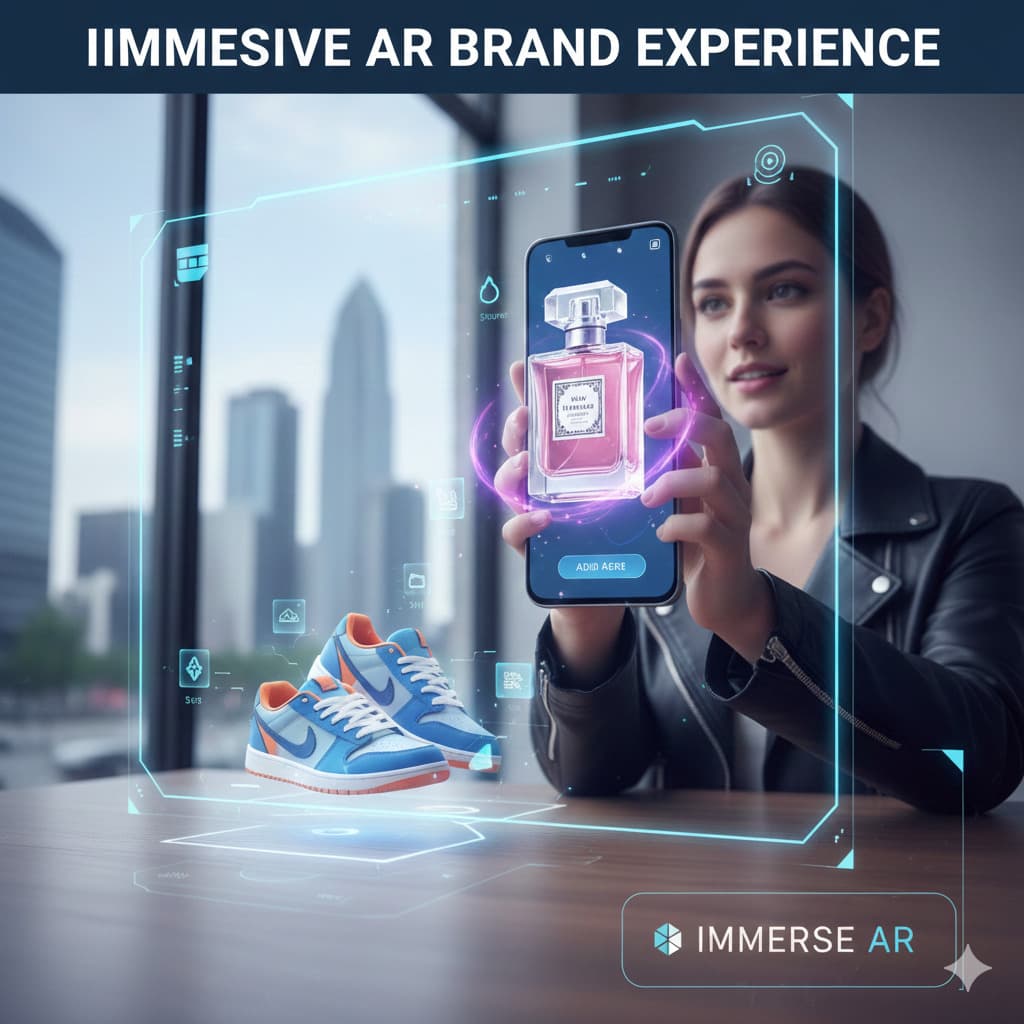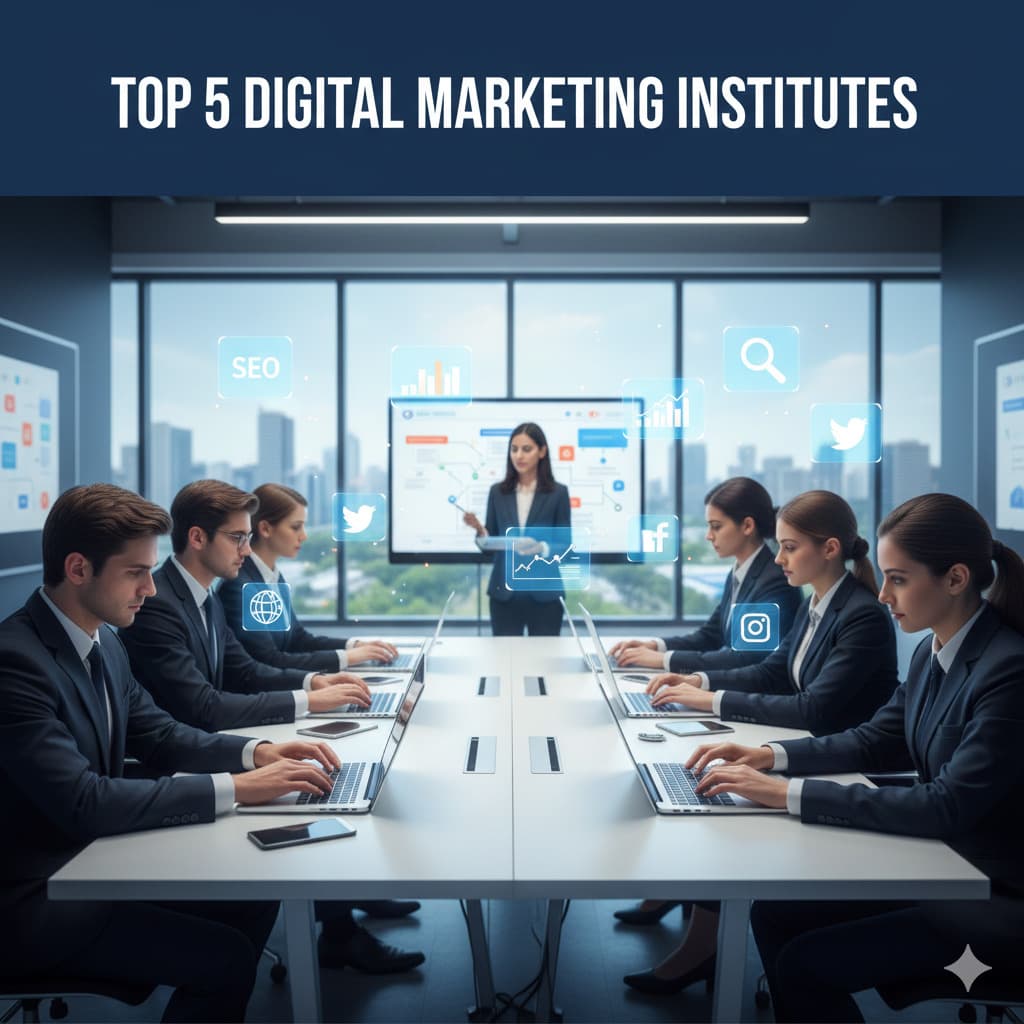
The digital marketing landscape in 2025 is rapidly evolving, driven by advancements in artificial intelligence (AI), data analytics, and changing consumer behaviors. To secure a high-paying job in this dynamic field, professionals must acquire a blend of technical and creative skills. This comprehensive guide outlines the top digital marketing skills that are in high demand and can significantly boost your career prospects.
1. Data Analytics and Interpretation
In the age of big data, the ability to analyze and interpret data is paramount. Marketers who can derive actionable insights from data are invaluable to organizations.
Key Competencies:
- •Proficiency in Tools: Google Analytics 4 (GA4), Tableau, and Excel.
- •KPI Analysis: Skilled in tracking and interpreting key performance indicators to measure success and guide strategy.
- •Customer Segmentation: Proficient in analyzing customer data to develop targeted and effective marketing campaigns.
Why It Matters:
Data-driven decision-making enhances campaign effectiveness and ROI. Marketers skilled in analytics can identify trends, optimize strategies, and contribute to business growth.
2. Artificial Intelligence (AI) and Automation
AI is revolutionizing digital marketing by automating tasks and providing deeper insights into customer behavior.
Key Competencies:
- •AI Tools: Familiarity with ChatGPT, Jasper, and other AI-driven content creation tools.
- •Marketing Automation Platforms: Experience with HubSpot, Marketo, and Mailchimp.
- •Predictive Analytics: Leveraging AI to anticipate customer behaviors and emerging trends.
Why It Matters:
AI enhances efficiency, personalization, and scalability in marketing campaigns. Marketers adept at leveraging AI can deliver more targeted and effective strategies.
3. Search Engine Optimization (SEO)
SEO remains a cornerstone of digital marketing, evolving with search engine algorithms and user behaviors.
Key Competencies:
- •Technical SEO: Strong grasp of site structure, mobile responsiveness, and page load optimization.
- •Content Strategy: Creating high-quality, keyword-optimized content.
- •Voice Search Optimization: Content for voice-activated search queries.
Why It Matters:
Effective SEO increases organic traffic, enhances visibility, and reduces reliance on paid advertising. Staying updated with SEO trends is essential for a sustained online presence.
4. Social Media Marketing and Management
Social media platforms are vital for brand engagement and customer interaction. Mastering these channels is crucial for modern marketers.
Key Competencies:
- •Platform Proficiency: Deep knowledge of Facebook, Instagram, LinkedIn, TikTok, and up-and-coming platforms.
- •Content Creation: Developing engaging multimedia content tailored to each platform.
- •Community Management: Building and nurturing online communities.
Why It Matters:
Social media marketing drives brand awareness, customer loyalty, and sales. Marketers who can effectively manage social channels are in high demand.
5. Email Marketing and Personalization
Email marketing continues to be one of the most efficient and cost-effective ways to reach as well as retain audiences.
Key Competencies:
- •Segmentation: Dividing audiences based on behavior and preferences.
- •Personalization: Crafting tailored messages to increase engagement.
- •Automation: Setting up automated email sequences for lead nurturing.
Why It Matters:
Tailored email campaigns significantly boost open rates and conversions. Marketers skilled in email strategies can significantly impact customer retention and revenue.
6. E-commerce and Conversion Rate Optimization (CRO)
With the surge in online shopping, optimizing e-commerce platforms for conversions is essential.
Key Competencies:
- •User Experience (UX): Designing intuitive and user-friendly interfaces.
- •A/B Testing: Applying split-testing techniques to refine content and enhance performance.
- •Sales Funnel Optimization: Streamlining the customer journey to boost sales.
Why It Matters:
Effective CRO strategies increase sales without additional traffic, maximizing ROI. E-commerce proficiency is a valuable asset in the digital marketplace.
7. Content Creation and Video Marketing
High-quality content, particularly video, is crucial for engaging audiences and conveying brand messages.
Key Competencies:
- •Storytelling Skills: Creating impactful narratives that connect with target audiences emotionally and authentically.
- •Video Production: Creating professional videos for various platforms.
- •SEO Best Practices: Ensuring content is optimized for search engines to maximize discoverability.
Why It Matters:
Engaging content drives traffic. Video marketing, in particular, has a high engagement rate and is favored by algorithms.
8. Paid Advertising and PPC Campaigns
Paid Media offers instant brand exposure and serves as a crucial element of a balanced marketing approach.
Key Competencies:
- •Platform Proficiency: Expertise in Google Ads, Facebook Ads, and other PPC platforms.
- •Budget Management: Allocating and optimizing ad spend for maximum ROI.
- •Performance Analytics: Continuously evaluating and refining campaigns based on real-time data.
Why It Matters:
Well-executed paid campaigns can drive targeted traffic and conversions. Marketers who can manage PPC effectively are essential for businesses seeking rapid growth.
9. User Experience (UX) and Customer Journey Mapping
Understanding and enhancing the customer journey ensures a seamless experience, leading to higher satisfaction and loyalty.
Key Competencies:
- •Customer Journey Mapping: Identifying touchpoints and optimizing each stage.
- •UX Design: Creating intuitive interfaces that meet user needs.
- •Feedback Analysis: Gathering and implementing user feedback for continuous improvement.
Why It Matters:
User Experience (UX) Prioritizing seamless, enjoyable experiences to build trust and encourage loyalty. Marketers who prioritize UX contribute to long-term customer relationships.
10. Generative Engine Optimization (GEO)
GEO is the next evolution of SEO, focusing on content that performs well in AI-powered search tools like ChatGPT and Google SGE. AI search visibility is essential for brands aiming to appear in AI-driven and conversational search results.
Key Competencies:
- •AI-Centric Content Creation: Crafting content optimized for ChatGPT and Google SGE.
- •Structured Data & Semantic Markup: Enhancing discoverability for AI engines.
- •Algorithm Understanding: Aligning content with generative search output logic.
Why It Matters:
As AI-powered search becomes prevalent, traditional SEO techniques are evolving. GEO focuses on optimizing content to appear in AI-generated responses, ensuring visibility in conversational search results.
11. Voice Search Optimization
As voice assistants become mainstream, marketers must adapt content to match how people speak. Voice SEO improves discoverability through natural language and featured snippets.
Key Competencies:
- •NLP Integration: Implementing natural language processing strategies.
- •Conversational Structuring: Organizing content to effectively address voice-activated queries.
- •Snippet Optimization: Targeting featured snippets and spoken keywords
Why It Matters:
With the increasing adoption of voice-enabled devices, voice search optimization has become essential. It enhances accessibility and meets the growing demand for hands-free search experiences.
12. Geo-Targeting and Location-Based Marketing
Targeting users by location allows brands to deliver relevant ads in real-time. It’s key for driving local traffic, regional awareness, and in-person conversions.
Key Competencies:
- •Geo-Fencing: Triggering ads when users enter specific areas.
- •Local SEO: Ranking for searches like digital marketing course in Chandigarh.
- •Mobile Optimization: Ensuring GPS-based features work seamlessly.
Why It Matters:
Location-based marketing increases ad relevance and engagement by targeting users in real-time based on where they are. It improves conversion rates, supports foot traffic to physical locations, and is critical for regional businesses and training institutes.
13. Interactive Content Creation
Quizzes, polls, and dynamic visuals drive higher engagement than static posts. Interactive content captures attention and provides valuable user insights in return.
Key Competencies:
- •Content Formats: Designing quizzes, polls, and infographics.
- •Platform Tools: Using platforms that support interactivity.
- •Data Analysis: Measuring interaction to refine strategies.
Why It Matters:
Interactive content fosters deeper user engagement, encourages sharing, and provides valuable insights into consumer preferences.
14. Sustainable and Ethical Marketing
Consumers favor brands with clear values. Ethical marketing builds trust by promoting transparency, sustainability, and responsibility across messaging and campaigns.
Key Competencies:
- •
Value Communication: Highlighting sustainability and ethics.
- •
Message Transparency: Maintaining honesty across campaigns.
- •
CSR Engagement: Participating in social and environmental initiatives.
Why It Matters:
More consumers are gravitating toward brands that actively embrace social responsibility. Ethical marketing builds trust and fosters long-term customer relationships.
15. Micro-Influencer Collaboration
Smaller influencers with niche audiences deliver authentic engagement. Partnering with them helps brands build credibility and drive targeted conversions cost-effectively.
Key Competencies:
- •
Influencer Discovery: Finding niche, authentic influencers.
- •
Relationship Management: Running campaigns and maintaining trust.
- •
Impact Measurement: Tracking awareness and engagement lift.
Why It Matters:
Micro-influencers often have highly engaged audiences. Partnering with such influencers can result in genuine promotion and improved conversion rates.
16. AI-Powered Personalization
AI lets you deliver hyper-personalized content, recommendations, and emails. This boosts user experience, engagement, and overall marketing ROI.
Key Competencies:
- •Behavioral Analysis: Using AI to understand user behavior.
- •Content Tailoring: Personalizing recommendations and content.
- •Automated Delivery: Running AI-based email and messaging flows.
Why It Matters:
Personalized marketing enhances customer experience, increases engagement, and boosts sales by delivering relevant content to individual users.
17. Data Privacy and Compliance
Data protection is now a marketing must. Staying compliant with privacy laws builds trust and prevents costly legal risks for brands handling user data.
Key Competencies:
- •Regulatory Knowledge: Understanding GDPR, CCPA, and others.
- •Security Measures: Protecting user data across channels.
- •Transparency Policies: Ensuring clear data collection practices.
Why It Matters:
As data privacy concerns rise, adhering to regulations is critical for maintaining trust and avoiding legal issues.
18. Omnichannel Marketing Strategy
Delivering a seamless experience across both digital and in-person channels fosters long-term customer loyalty. Omnichannel marketing meets users where they are—seamlessly and strategically.
Key Competencies:
- •Channel Integration: Unifying campaigns across email, social, web, and retail.
- •Brand Consistency: Maintaining tone and visuals throughout.
- •Analytics Mapping: Tracking user journeys across touchpoints.
Why It Matters:
An omnichannel approach provides a seamless customer experience, increasing satisfaction and loyalty by meeting consumers where they are.
19. Social Commerce
Shoppable posts on platforms like Instagram and Facebook simplify buying. Social commerce merges engagement and transactions in one streamlined journey.
Key Competencies:
- •Shop Setup: Creating storefronts within social apps.
- •Shoppable Content: Designing click-to-buy posts and stories.
- •Sales Tracking: Monitoring performance through analytics.
Why It Matters:
Social commerce combines social media and e-commerce, allowing users to purchase products directly through social platforms, streamlining the buying process and increasing sales.
20. Augmented Reality (AR) and Virtual Reality (VR) Marketing
Augmented and virtual reality offer immersive brand experiences that go beyond static ads. These tools help engage users, showcase products interactively, and boost conversions.
Key Competencies:
- •AR/VR Development: Building interactive, immersive product demos.
- •Social Integration: Using AR filters in social media campaigns.
- •Collaborative Design: Working with developers on branded virtual spaces.
Why It Matters:
AR and VR technologies offer engaging ways to showcase products and services, leading to higher customer engagement and conversion rates.
Your Future in Digital Marketing Starts Now
Digital marketing in 2025 demands more than just basic know-how—it requires sharp, up-to-date skills. Whether it’s SEO, AI tools, geo-targeting, or voice search, mastering these areas will set you apart in a highly competitive job market.
If you're serious about a high-paying career, now is the time to upskill. Our digital marketing institute trains you in exactly these in-demand areas, preparing you for real-world success.
Start building your future in digital marketing today.






